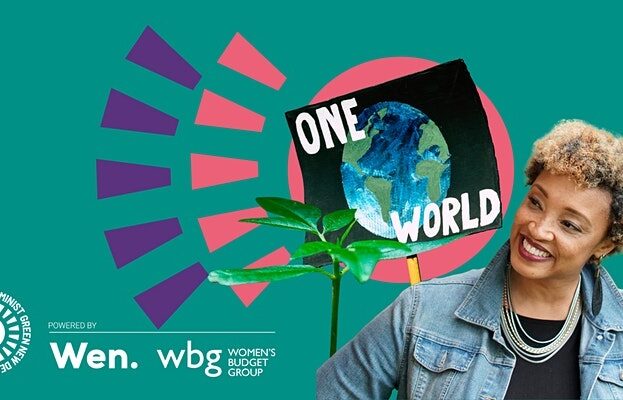
This COP26, Wen (Women’s Environmental Network) and the Women’s Budget Group invite you to an evening exploring the importance of implementing an intersectional, feminist approach to tackling the climate crisis.
We’ll hear from international activists, academics, policymakers and grassroots organisations on UK and Global Feminist Green New Deal work. We’ll also be showcasing our Climate Sisters creative projects at the event. Guests will be invited to a networking reception to enjoy drinks and a light buffet whilst also viewing our Climate Sisters exhibition.
Speakers:
ZARINA AHMAD, CLIMATE CHANGE & ENVIRONMENTALIST
DR SHERILYN MACGREGOR, UNIVERSITY OF MANCHESTER
SASCHA GABIZON, EXECUTIVE DIRECTOR, WECF – WOMEN ENGAGE FOR A COMMON FUTURE
KAVITA NAIDU , INTERNATIONAL HUMAN RIGHTS LAWYER
ANNE KARPF, SOCIOLOGIST, JOURNALIST, AUTHOR OF HOW WOMEN CAN SAVE THE PLANET – CHAIR
More about the event
The twin crises of ecological breakdown and social injustice are what the Green New Deal is designed to address. In terms of ecological breakdown, we know what is needed to ensure the planet continues to sustain life. The same is true of addressing social injustice. We know what conditions must be met to ensure people are able to live flourishing lives: we just need to create them.
However, Green New Deal proposals have paid little attention to gender and intersectional inequality. This risks them unintentionally worsening current structural inequalities in a range of areas including employment, housing, transport, access to food, healthcare and education.
The climate crisis necessitates urgent action to transform our economy and society. Yet, although climate change will impact on everyone on the planet, it is women and people of colour who will experience the most acute effects. Globally, women face increased vulnerability to the impacts of climate change, due to their different and unequal social roles and status.


